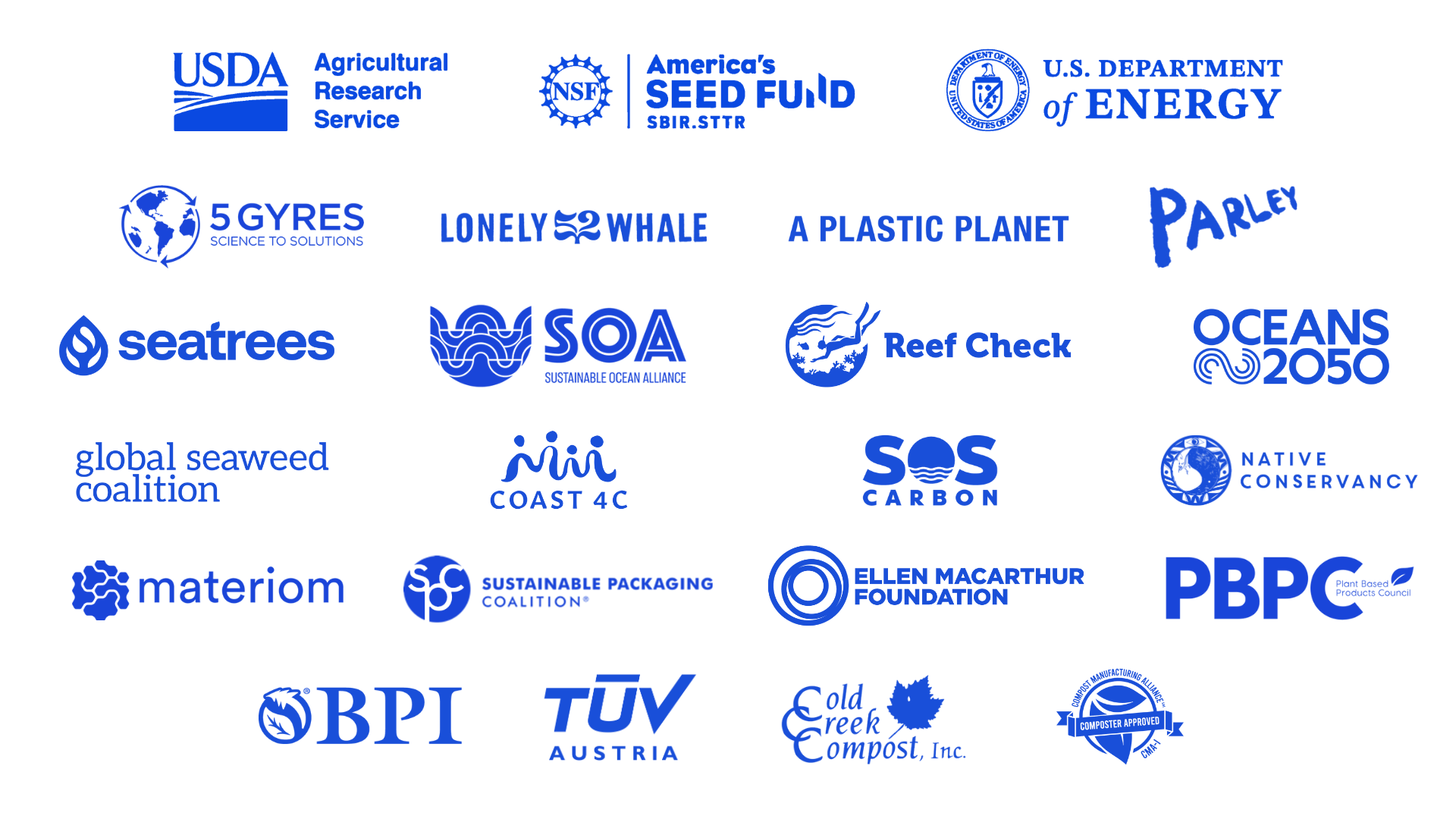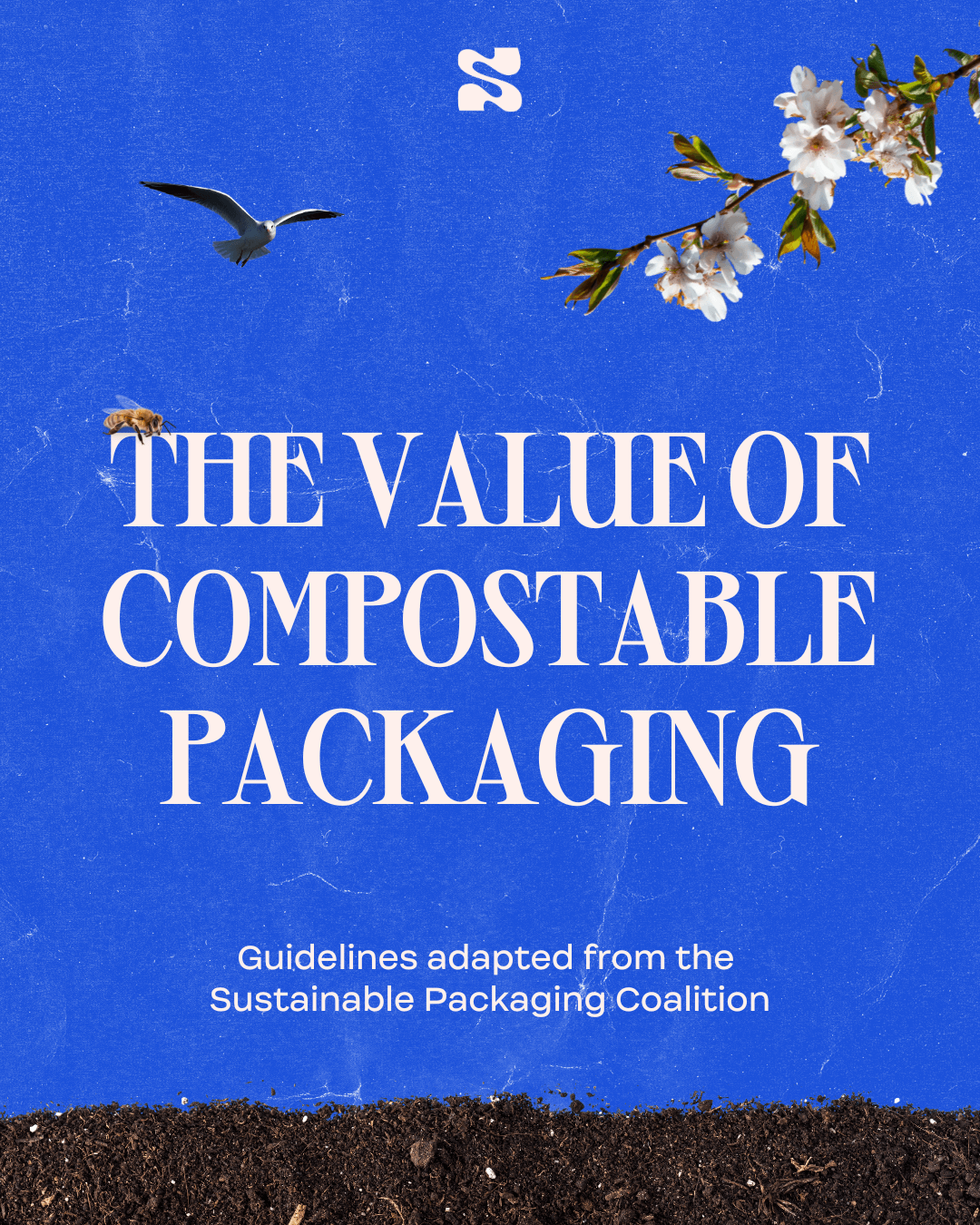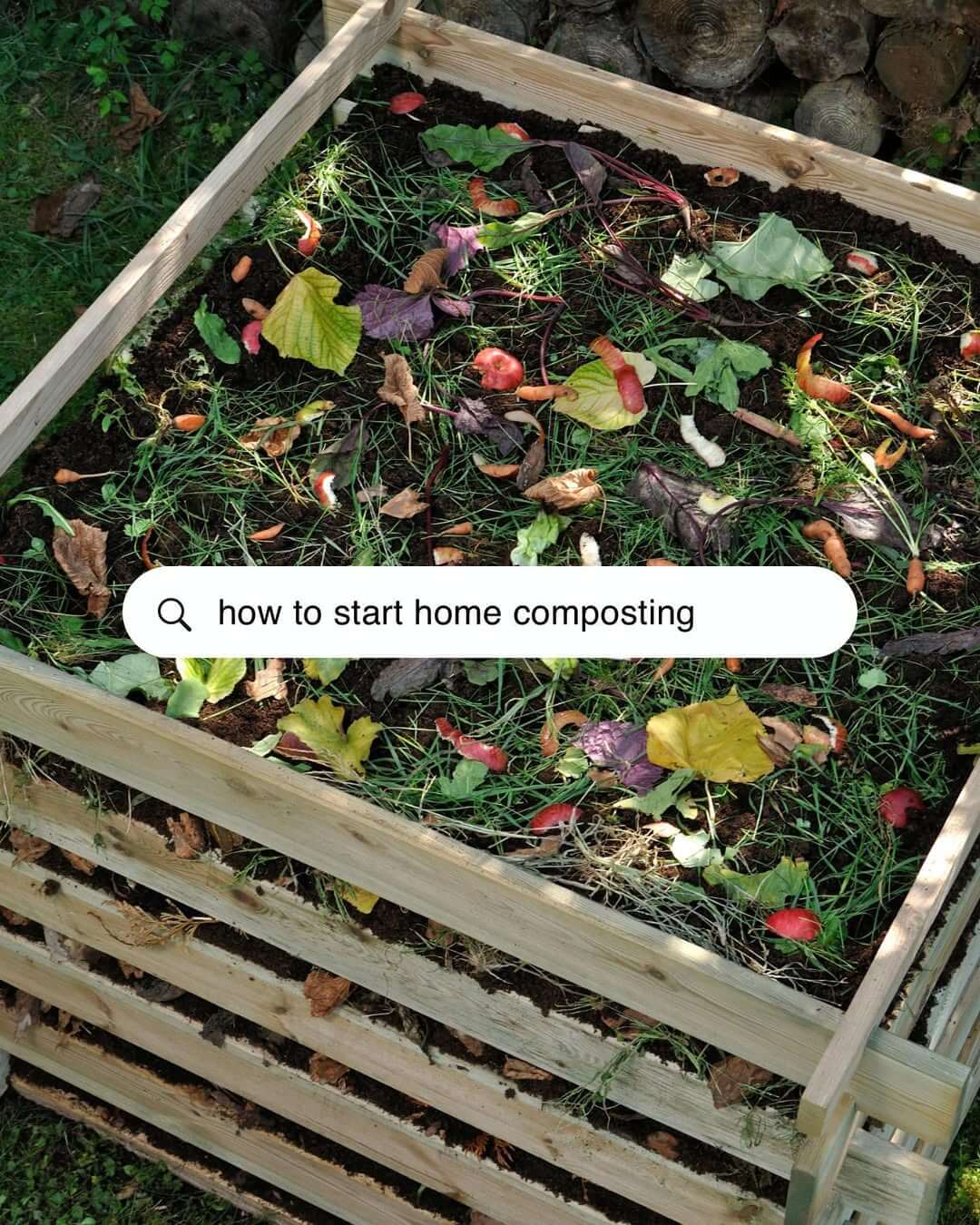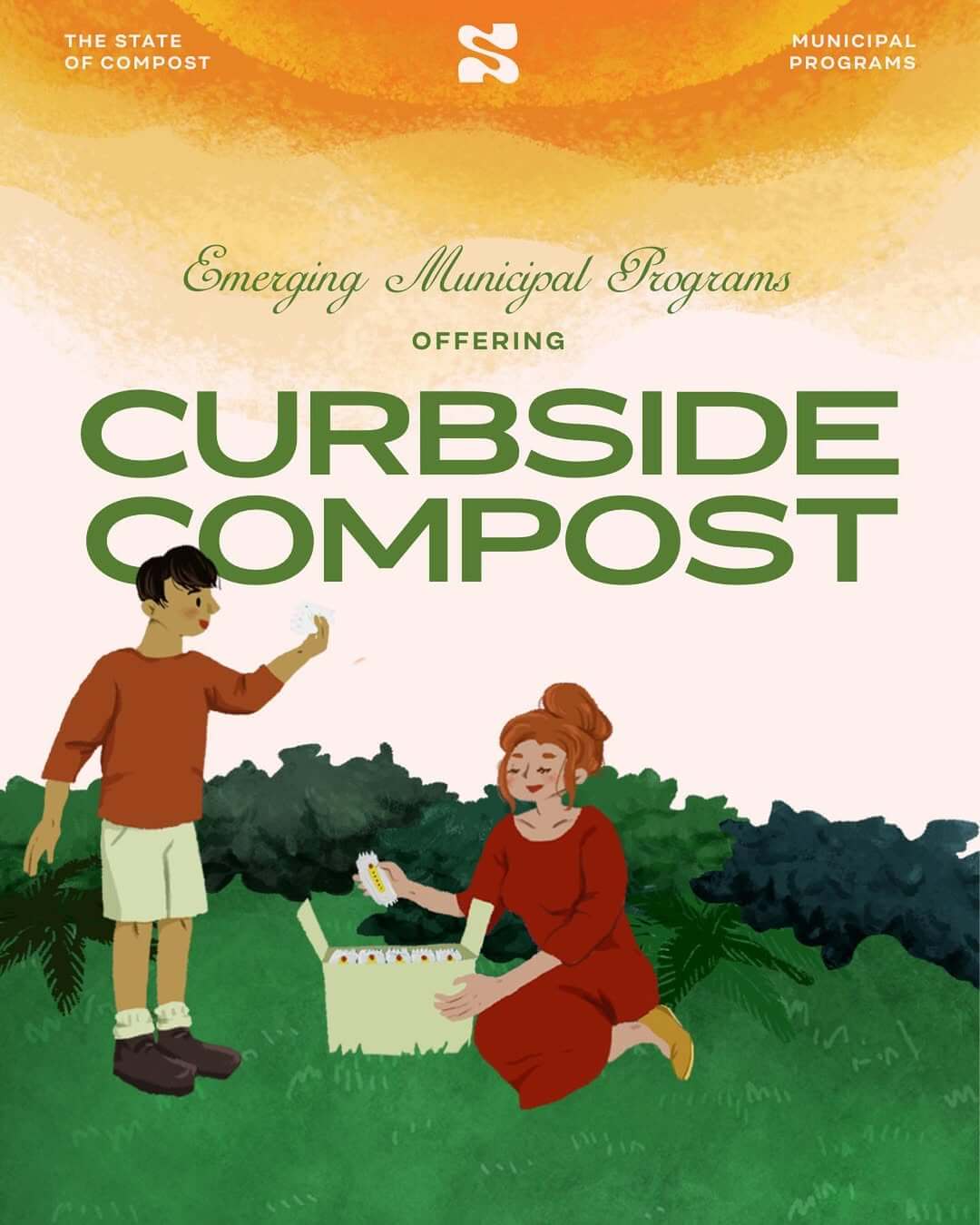Together, we can usher in a new age of materials.
Learn how Sway is creating tangible, lasting change for the future of everyday materials – one which creates reciprocity between business and our shared planet.
Our Guiding Principles
Progress over perfection
If it was easy, it would have been done already. We won’t let our vision of a perfect future impede on better solutions now. Every step forward brings us closer to our ultimate goal of mainstreaming materials that replenish the planet.
Collaborate, don't isolate
We operate in community, rather than making assumptions in silos. We listen to expert wisdom — scientists and legacy industry — to understand what makes solutions work. Embedding collaboration from the beginning increases likelihood of success.
No silver bullet
We need an ecosystem of solutions to tackle our world’s plastic problem. A rising tide lifts all boats — every step away from traditional plastic builds momentum for systemic change, paving the way for others to follow.
THE PROBLEM
Plastic is ubiquitous.
160,000 plastic bags are produced every second. That's 5 trillion bags every year, enough to circle the planet 7 times. Only 2% are recycled, while the rest persist forever in landfills, nature, and our bodies. The average American ingests up to 12 shopping bags worth of toxic plastic particles annually.
While we should eliminate packaging wherever possible, its protective and hygienic benefits remain essential in our globalized world.
We believe in a hierarchy of solutions to solve the plastic crisis. No packaging is the best packaging. Paper and reusables come next. Sway strives to fill the niche where flexible, lightweight, single-use materials are necessary.
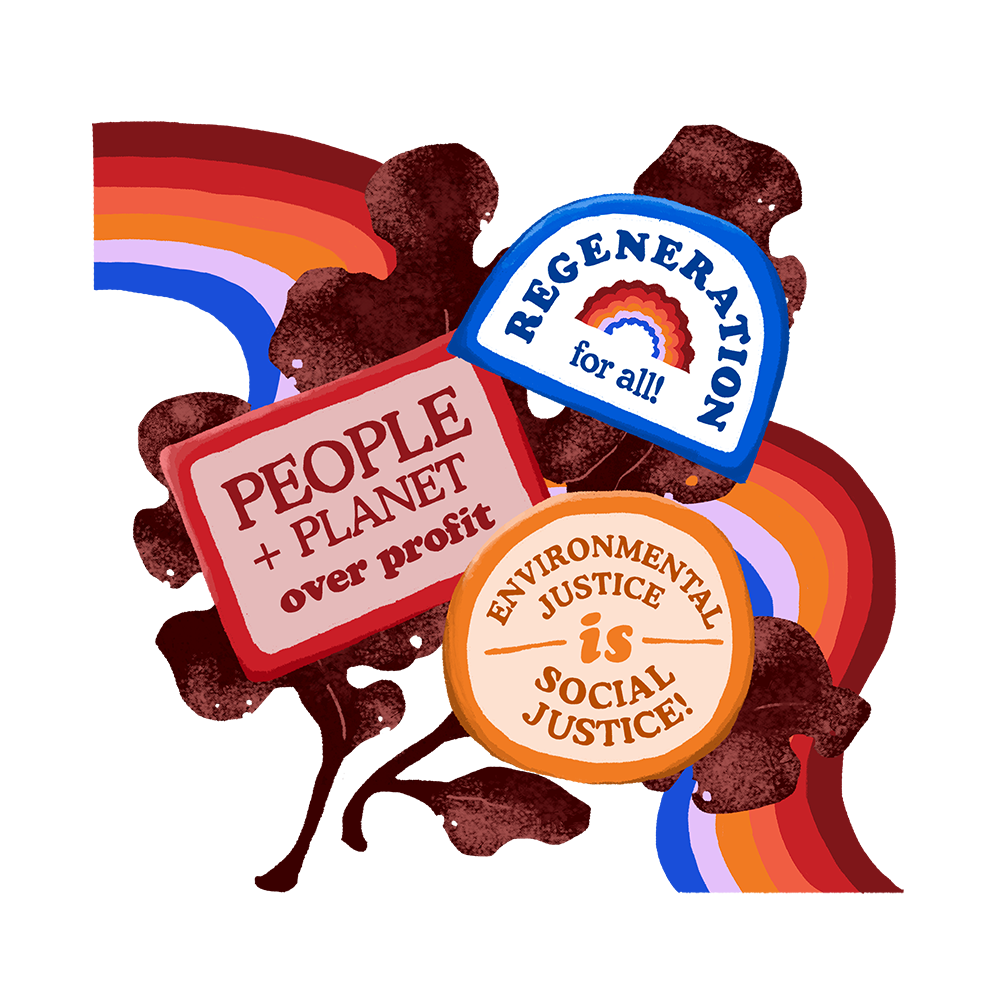
Our Solution
Sway is leveraging seaweed — the most abundant, fast-growing ocean resource — as the base in our growing portfolio of compostable solutions for hard-to-recycle, single-use plastics.
90+
seaweed farms supported
100+
acres biodiversity supported
2.6M
lbs seaweed sourced to-date
105k
lbs C removed from environment through seaweed sourced
10.8k
lbs N removed from environment through seaweed sourced
618
lbs P removed from environment through seaweed sourced
30+
countries represented as suppliers
1.4B
plastic bags replaced by 2030
Creating value, from sea to soil
We use the principles of the circular economy to design our products and supply chain alike, striving to restore social and ecological systems harmed by the impacts of plastic and pollution.

WHY SEAWEED?
Seaweed replenishes the planet.
Imagine our oceans brimming with life, rather than pollution. At Sway, we see an incredible opportunity to treat the ocean as the hero of a new material future.
Seaweed is a renewable marine crop plentiful in natural polymers, the building blocks of Sway’s material portfolio. When compared to common renewable packaging inputs like corn, potato, or sugarcane, the benefits of seaweed go above and beyond. Seaweed thrives off sunlight and sea water, requiring little to no inputs. It’s abundant, fast-growing, space-efficient, and available on nearly every coastline in the world.
Plus, seaweed creates regenerative impact (giving back more than it takes) as it grows: increasing habitat for marine life, boosting biodiversity, and mitigating climate change impacts like ocean acidification and erosion. New science is proving that seaweed farming can also sequester substantial amounts of carbon.
By using seaweed as a key ingredient across Sway's material portfolio, we can scale its regenerative impact in tandem with our products.
Sway CEO & Co-founder Julia shares how seaweed became the foundation of our technology portfolio. Short film by Imagine5.
Explore the Science
Seaweed FAQ



Our Seaweed Sourcing Ethos
Sway sources seaweed around the world, from commercial suppliers to small-scale farmers in emerging blue economy zones. While impact looks different with every supplier, depending on the regional context and cultivation methods, our comprehensive seaweed sourcing framework universally commits to:
1. Protect and enhance ecosystem services
2. Employ non-extractive, sustainable harvest techniques
3. Ensure zero introduction of plastic or synthetic substances into natural environments
4. Support cultivation in open, integrated ecosystems
5. Preserve critical habitat integrity
6. Prioritize farmer welfare
Here are a few examples of the great diversity of social and environmental impacts seaweed can make:
Learn more about our work exploring sargassum in the Puerto Rico Studio. Short film by Newlab.
We design for legacy industry.
A solution is only as good as how seamlessly it can be adopted. Our technology is designed to fit the systems that already exist, enabling compatibility with globally scaled plastic manufacturing infrastructure.
In this way, Sway invites legacy industry to adopt plastic replacements with ease. Rather than being left behind, these material manufacturers become essential players in building a biobased future.

How It Works
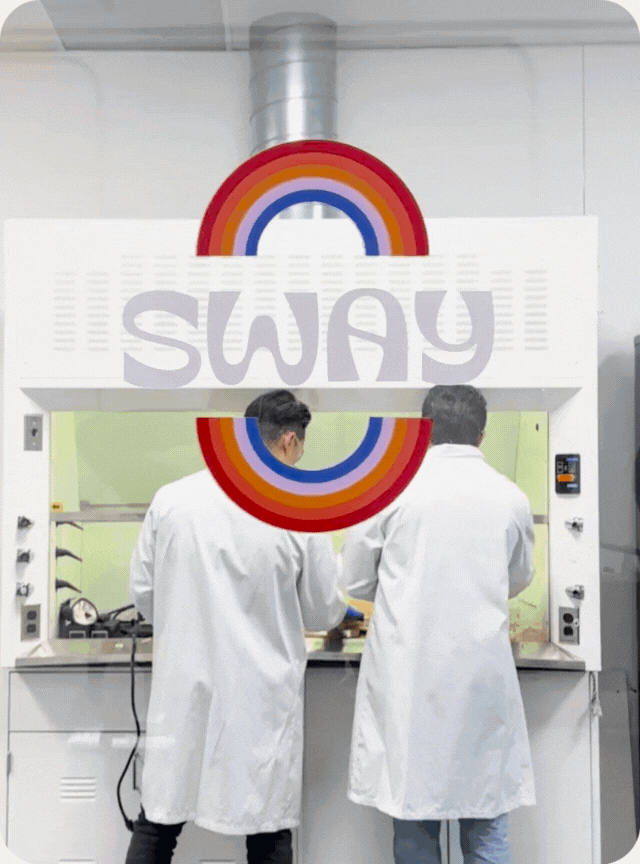
STEP #1: FORMULATION
Sway is an ingredient brand. At our lab in the San Francisco Bay Area, we develop breakthrough formulations through continuous prototyping, rigorous testing, and lab-scale production trials. Our team is constantly innovating!
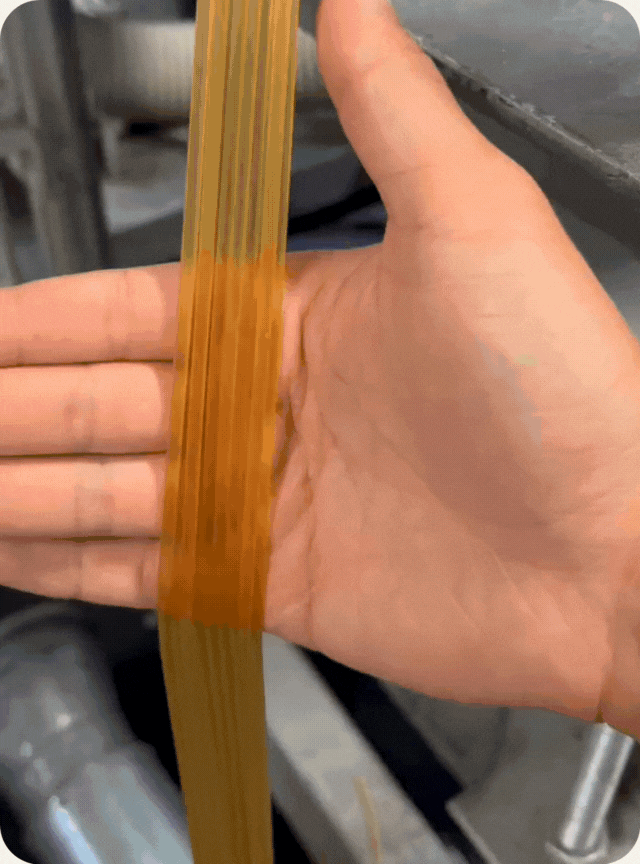
STEP #2: MANUFACTURING
We partner with established domestic manufacturers who utilize standard plastic processing equipment. These partners compound and extrude our biobased formulations into high-performance pellets and flexible films.
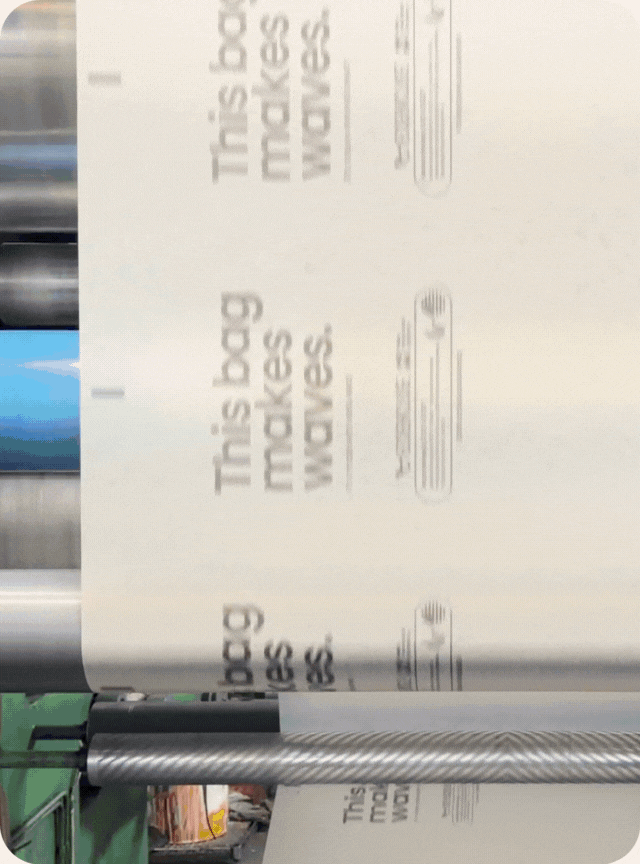
STEP #3: DISTRIBUTION
Our network of packaging manufacturers and distributors transform our finished materials into packaging for brands across industries — from fashion and sports, to cosmetics and personal care, and beyond. We're just getting started!
WHY COMPOST?
Composting closes the biological loop.
Composting diverts waste from landfill and supports healthy soil systems by repurposing nutrients into new life. Sway designs our technology for 100% compostability, meaning that our products can be composted in both home and industrial facilities.
Our team works in tandem with composters, coalitions, and communities to help facilitate the mass adoption of composting, with the goal of making it an accessible and mainstream practice.
We envision a future where consumption can actually feed into a cycle of biological circularity – a system nature invented eons ago.
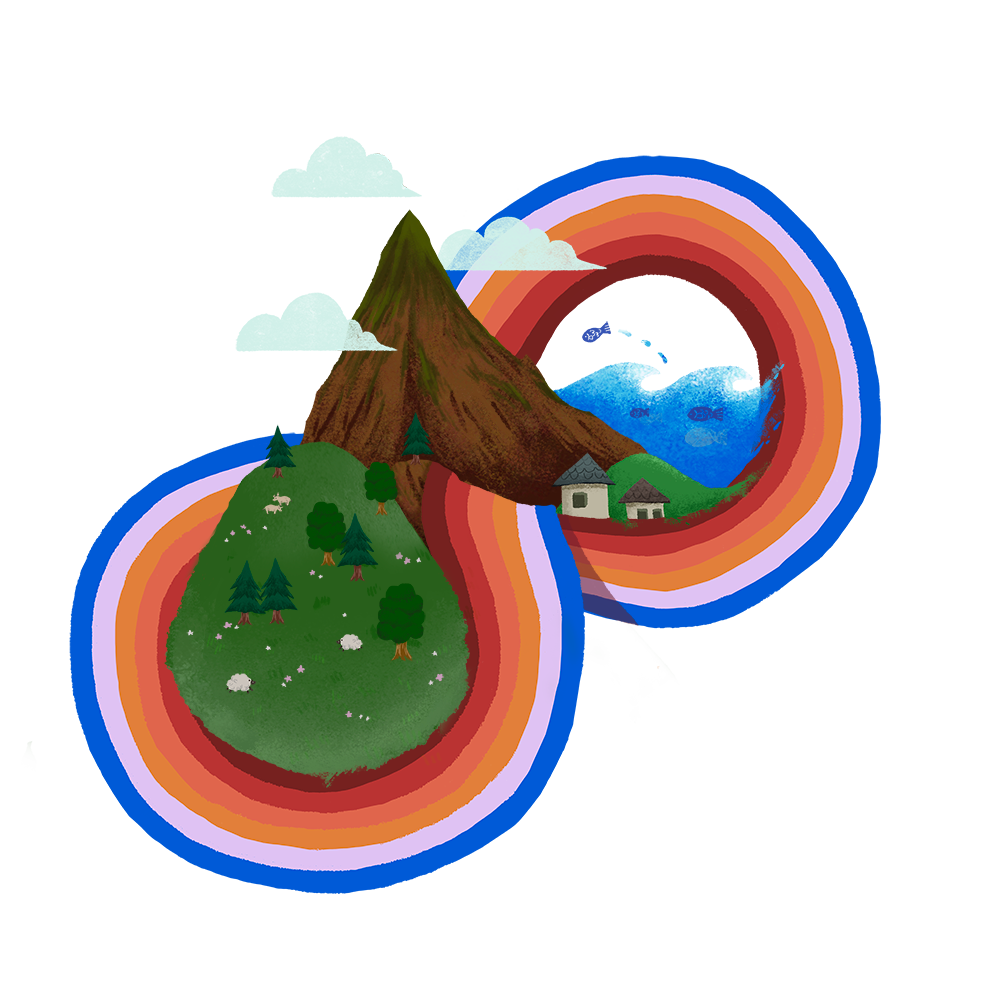
Composting Resources
Compost FAQ
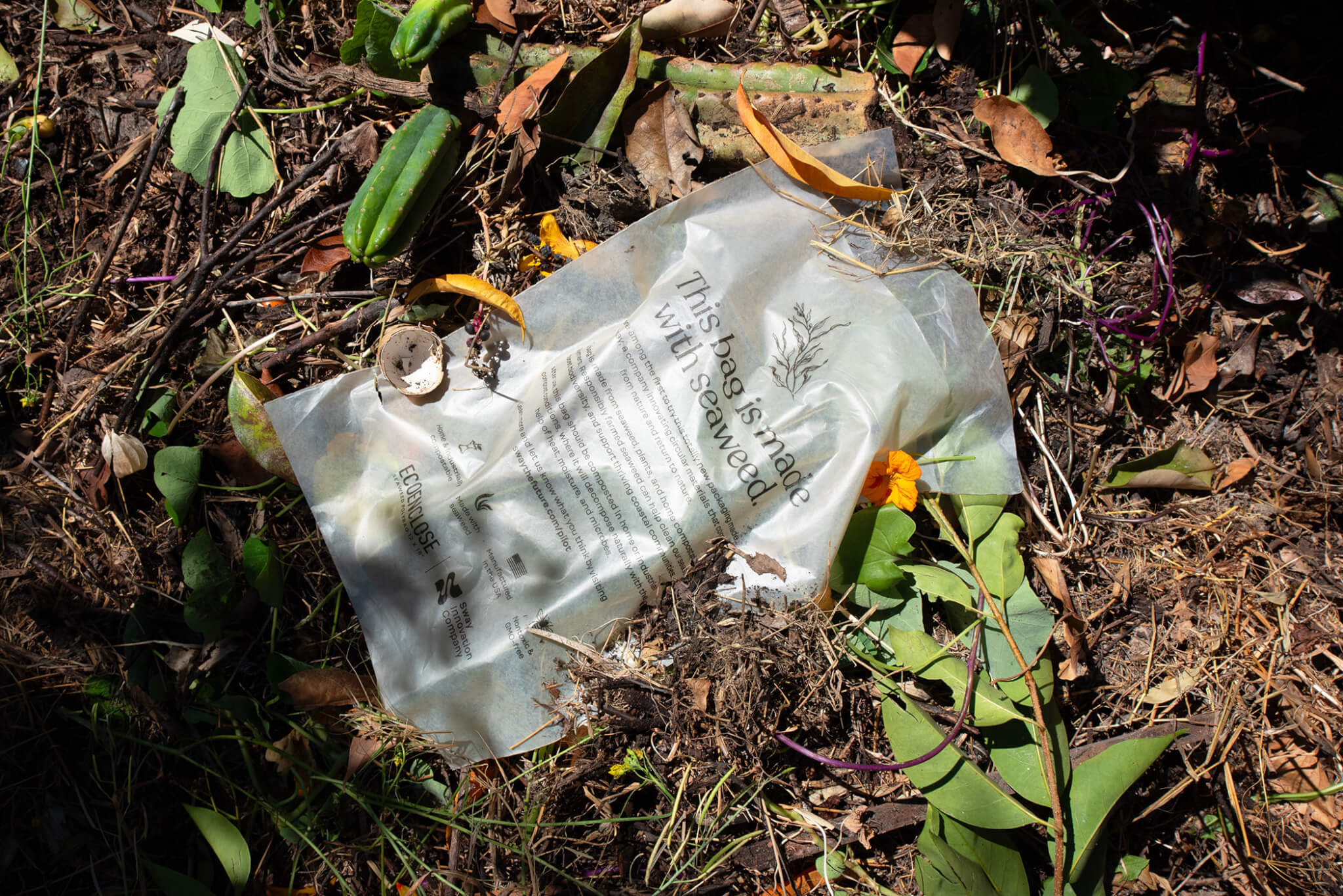
Impact Ecosystem
Sway works in tandem with partners across industry and innovation to maximize the impact of our products at every step of the value chain, from formulation to decomposition.
